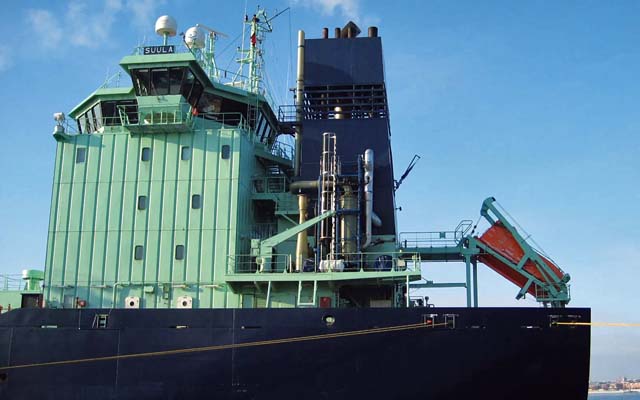German nature conservation and biodiversity organisation NABU has sent a letter signed by 14 environmental protection organisations to the OSPAR Commission (North-East Atlantic Marine Convention), which demands that the discharge of waste water from exhaust gas scrubbers in the 12-mile zone along the coast be banned.
NABU perpetuates that belief, denied by major shipping companies and organisations such as Clean Shipping Alliance (CSA), that when scrubbers are used by ships that continue to run on particularly toxic heavy fuel oil instead of, for example, marine diesel, the scrubber wash water contains high sulphur concentrations from the exhaust gas stream. This wash water causes seawater pollution, including heavy metals, polycyclic aromatic hydrocarbons (PAHs) and other toxic substances which lead to long-term damage to the marine environment.
NABU shipping expert Raija Koch said: “This practice, which is devastating for the marine environment, must be stopped immediately. The OSPAR Commission has a central role as a pioneer for the protection of the marine environment in the North-East Atlantic. It must use this pioneering role and focus on the precautionary principles and the protection of marine ecosystems. Waiting for a global consensus on the scrubber ban must not be used as an excuse for inaction.”
Koch said that Germany should advocate for the discharge ban at OSPAR and combine this with an overall effective marine protection policy.
NABU Head of Marine Protection Kim Detloff added: “The discharge of wash water, habitat destruction, overfishing and nutrient pollution prevent the achievement of good environmental status according to the EU Marine Strategy Framework Directive. It is time to make shipping more responsible for protecting nature and the climate. This must be translated into a credible marine protection policy of the future federal government, together with intelligent spatial planning, use-free marine protected areas and the restoration of salt and seagrass meadows and reefs.”
CSA refutes NABU’s stance, saying that there is no in-depth scientific risk assessment which suggests that scrubber discharge causes serious pollution, an opinion borne out by a recent study by Norwegian research body Sintef and shipping company Solvang.
Image: Scrubbers are again being blamed for marine pollution (source: Wärtsilä)



